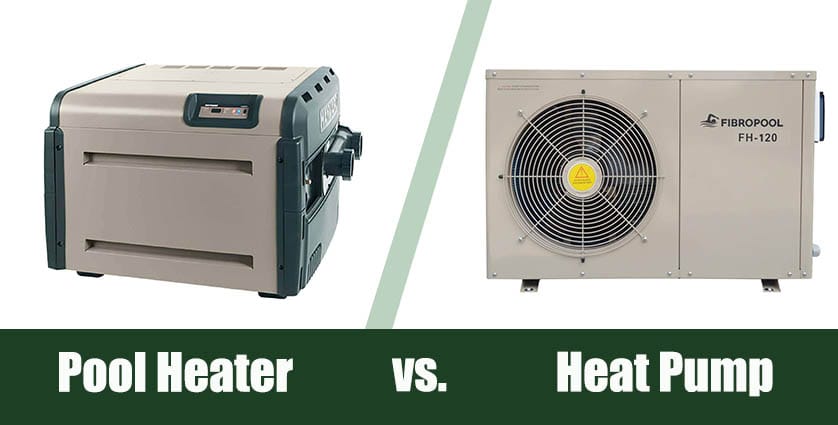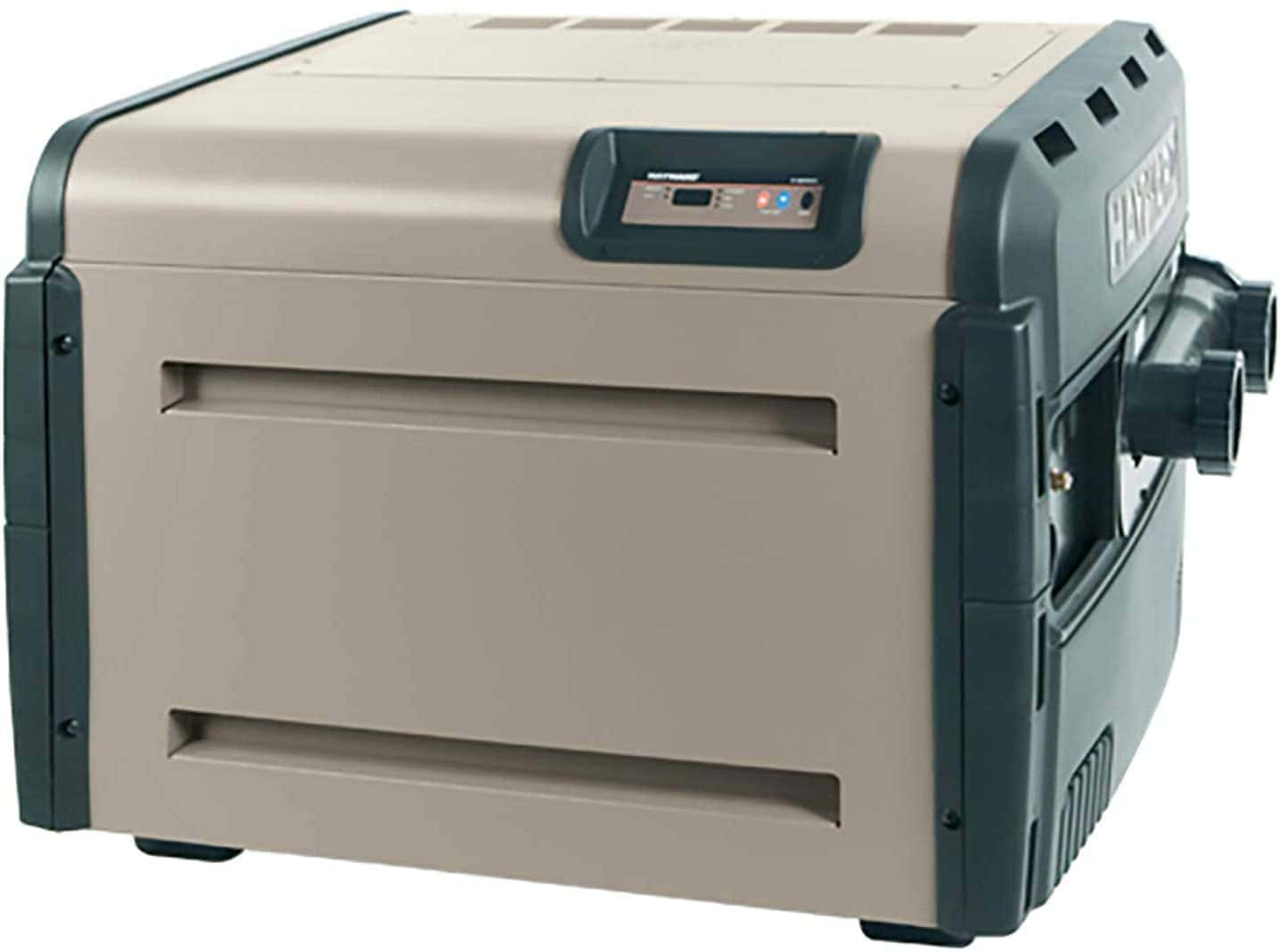Pool Heater vs Heat Pump: What’s the Difference?
-

- Last updated:


If you are looking to heat your swimming pool, you may have questions about the two main ways to warm the water, which is using either a heater or a heat pump. Most people understand how pool heaters work, but they may have some questions about the heat pump.
We are going to compare the two different ways to heat your pool and what circumstances might call for each type. Join us while we take a close look at heaters and heat pumps to see how they function and which one is better for you.

What Are the Heating Types?
Let’s compare pool heaters with heat pumps to see what the differences are.
Pool Heaters
Pool heaters are the traditional way to warm the water in your pool, and several types of heaters are in this category. Gas heaters, including natural gas and propane heaters, and electric heaters, fall into this category. These heaters work by passing water over a hot element that was heated by electricity or gas.
The benefit of using the pool heater is that they are much more effective at heating the water quickly. Natural gas, in particular, can raise the temperature of the water very rapidly, and can also allow you to run your pool in cold weather. The initial purchase and installation cost is also often much lower than with heat pumps, except in the case of natural gas heaters.
The downside to using pool heaters is that they can be very inefficient, particularly in the case of electric heaters. The cost of operating these heaters over a few seasons will be much higher than heat pumps, and with the fluctuating price of fuel, the cost of heating the water for the season is unpredictable.
Another downside to using pool heaters is that they require frequent maintenance to make sure they remain in top condition. The heat exchanger is prone to damage from minerals in the water and often leads to heater failure. Heat pumps require very little regular maintenance once installed and set up. They have no heat exchanger and will not suffer the same damage from minerals in the water.
- Fast heating
- Works in any temperature
- Cheaper than heat pumps
- High operating cost
- Heat exchanger damage
- Frequent maintenance


Heat Pumps
Heat pumps are a relatively modern way to heat the water in your pool, and they work in a very similar way as an air conditioner, but in reverse. Heat pumps use ambient warm air to heat refrigerant. The heat pump then compresses the refrigerant to increase the temperature. The higher temperature is then run through a heat exchanger to transfer the heat to the water.
The primary benefit of using a heat pump is that it is very energy efficient and only costs a fraction of what a standard heater would cost to operate on an hourly basis. Because of their efficiency, this type of heater can pay for itself over time when compared to a traditional heater. Once you achieve the desired temperature, it can maintain it indefinitely at a very low energy cost.
The downside to the heat pump is a very high initial cost to purchase and install. Heat pumps also take a very long time to warm the pool to a comfortable temperature, and it loses efficiency as the temperature drops. Once the air around the heat pump is cold, the device will no longer be able to warm the water. Heat pumps generally stop working when the ambient temperature is below 50 degrees.
- Energy efficient
- Low ongoing cost
- Low maintenance
- High installation cost
- Only works in warm weather

Which Type is Better?
If you live in a warm climate, use your pool every day, and have the budget for it, a heat pump can be the perfect way to maintain warm temperatures in your pool. The heater may take several days to warm the water, but once you reach the desired temperature, the heat pump does a fantastic job of maintaining it.
If you live in a colder climate, want to extend the swimming season, want to raise water temperatures excessively high, or need to raise the temperature of the water quickly, you may want to opt for a standard pool heater. These heaters are capable of all these things and are generally cheaper to purchase and install. Natural gas, in particular, can be a very inexpensive way to keep your pool running during the winter months.
Final Thoughts
We hope that you have enjoyed reading over our comparison of these two types of heaters. Each has a specific purpose that it excels at better than the other and which one you choose will depend on your particular situation. If you have found our guide helpful and you are closer to choosing the right kind for you, please share this comparison of pool heaters and pool pumps on Facebook and Twitter.
Featured Image: CoolR, Shutterstock
Contents



